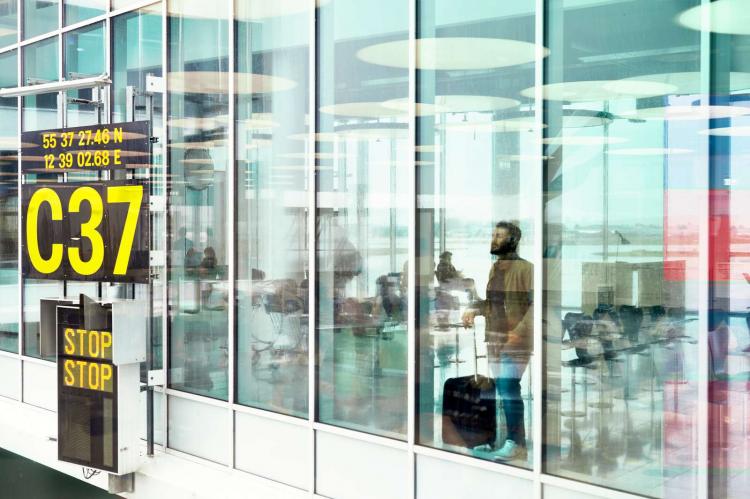What options are dive operators left with in face of COVID-19?
The pandemic, which has now raged in earnest for more than half a year, has impacted the dive industry in ways few thought possible.
With borders reopening and travel following tentatively, keeping on top of the latest developments can be a full-time job. No sooner does one restriction ease than another seems to be implemented, a situation troubling for holidaymakers chomping at the bit.
In the United Kingdom, for example, countries once on the safe list have now been placed back on the no-go list. A very real possibility is travelling to a “safe” country and discovering a two-week quarantine has been suddenly implemented on your return home.
Fear factor
With daily reports of deaths and infections spreading about like sports statistics, fear of travelling is very understandable as air travel was how the virus spread worldwide in the first place. A healthy sense of respect and responsible behaviour is paramount to keeping the virus at bay. As long as we heed the advice and take appropriate precautions, we need not be overly afraid. On the other hand, believing it is blown out of proportion or an outright hoax may lead to irresponsible behaviour, as witnessed repeatedly in the United States. Ultimately, the goal is to keep everyone safe during the resumption of travel.
But how can tour operators (and specifically, dive operators) adapt and thrive during the current situation?
The fact is the world cannot stay shut down indefinitely. Life must go on. Be it for business, pleasure or family issues, people want and need to travel. The current restrictions and procedures, although absolutely necessary, do not exactly make the prospect of long-distance travel enticing. Despite the uncertainty, a glimmer of hope is creeping over the horizon.
Planes should be of the least worry
According to a recent CNN report, experts, who refer to the few documented cases of in-flight transmission, say that the risk of contracting COVID-19 aboard a flight is actually quite low. If proven true, the perceived risk of getting on an airplane could be unfounded. In one instance on 31 March, 328 passengers and crew members on a flight from the United States to Taiwan were tested for coronavirus after 12 symptomatic passengers were identified. Ultimately, all other passengers and crew members tested negative.
One reason for the apparent low level of risk is that air is replaced with new, fresh air every two to three minutes in modern aircraft cabins. Most aircraft have air filters that trap 99.99 percent of particles. With protocols like mandatory face masks or shields, temperature screenings, intensive cabin cleaning and limited cabin movement implemented during flights, flying is not particularly unsafe, just uncomfortable. Going through airports has also become a bit more of a hassle and inconvenience.
The dive industry will have to look towards the general travel industry for solutions. Airlines, international hotel chains and cruise liners possess deeper pockets, more manpower and have much more at stake.
Test schemes
A solution gaining momentum is for travellers to present a negative COVID PCR (polymerase chain reaction) test taken within a 10-day period prior to departure as well as another test taken upon arrival at their destination. If results are negative under these circumstances, overseas travel should not be an issue, especially if it is to a country that does not have an enforced quarantine-on-arrival policy.
New rapid COVID-19 test centres in the airports themselves, with results delivered in hours or even as fast as 90 minutes, could also possibly replace quarantine requirements and ease travel. A two-test model, which has been used successfully in Iceland, involves a first test taken upon arrival and a confirmatory test a few days later.
On location
With regards to dive operators and liveaboards, increased sanitising of equipment and facilities, combined with social distancing practices, should allow for both a safe and fun diving experience.
Doing away with quarantine
Frankly, the biggest travel deterrent seems to not be travel itself, but the prospect of a two-week enforced quarantine upon returning home. According to Quash Quarantine spokesperson Paul Charles, “If we are going to learn to live with COVID, there have to be alternatives to quarantine. Quarantine measures are extremely destructive to the economy because you quarantine the vast majority of people that are perfectly healthy, affecting productivity and scarring the economy. The alternative has to be testing.”
But in our world of polarised media reports and personal viewpoints, the answer is not going to extremes. Instead, listen to and follow sound advice from those in the know. As long as safety and common sense are utilised, travel should not be out of bounds. The resorts and liveaboards need our support.
SOURCE: CNN, JAMA Network Open
“If we are going to learn to live with COVID, there have to be alternatives to quarantine. Quarantine measures are extremely destructive to the economy, because you quarantine the vast majority of people that are perfectly healthy, affecting productivity and scarring the economy. The alternative has to be testing."
—Paul Charles, spokesperson for Quash Quarantine


